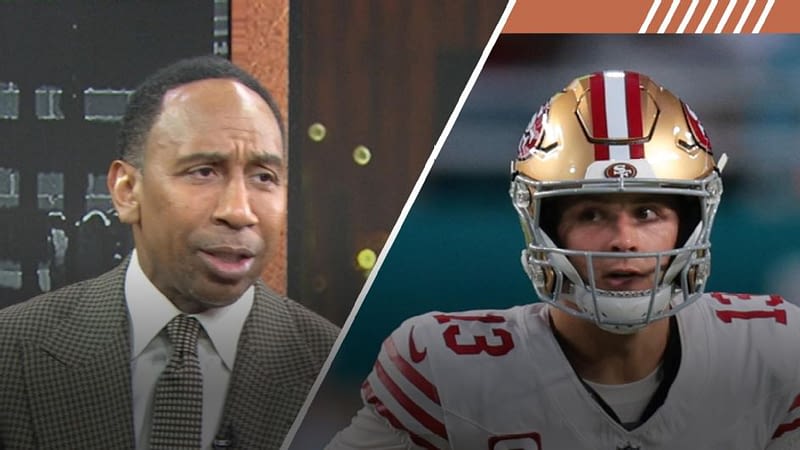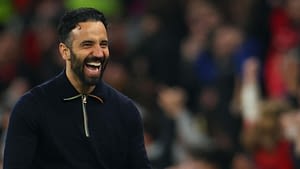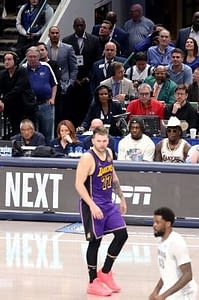49ers Owner Jed York Discusses Offseason Strategy Amid Player Departures
PALM BEACH, Fla. — The San Francisco 49ers have been making headlines this offseason, and not necessarily for the reasons fans might hope. With a significant number of players leaving the team, owner Jed York took the opportunity to address the situation and shed light on the team’s strategy moving forward. On Tuesday morning, York spoke publicly for the first time about the rationale behind the team’s offseason approach, which has seen the departure of 17 players through free agency, trades, or releases.
According to York, the decision to part ways with these players and refrain from spending heavily on outside free agents is closely tied to the impending payday for quarterback Brock Purdy. York chuckled at the notion that he’s been “cheap” this offseason, especially given the team’s history of ranking at or near the top of the league in spending over the past five years.
“I’ve been called worse,” York said. “I get it. Fans care. You want to win. And when you’re in a world where everybody is watching the NFL the first week of free agency or at least the first few days of free agency, it’s a frenzy. … When you’re not overly active in that space, it gets easy to say ‘Oh, you don’t want to win.’ … I don’t know that, as we looked at the board, that there was somebody that we felt made that type of an impact more so than making the decision to try to go pay Brock.”
York has been consistent in his desire to secure Purdy’s future with the team, even as far back as last year’s league meeting in Orlando. Despite Purdy’s uneven 2024 season, where injuries to key members of his supporting cast affected his performance, York remains committed to keeping Purdy for the long term.
As the 49ers evaluated their roster-building strategy following a disappointing 6-11 season, York revealed that the decision to pay Purdy was solidified midway through last season. On Tuesday, York referred to Purdy as a top-10 quarterback in the league, indicating that a significant payday is on the horizon.
“I think he is,” York said. “I think he’s great. Especially when you combine him with [coach] Kyle [Shanahan] and you combine him with what we have, and he’s a heck of a quarterback. And we want him to be here for a long, long time.”
With the decision to prioritize Purdy’s contract, the 49ers braced themselves for an offseason marked by more departures than arrivals. In the early days of free agency, the team bid farewell to key starters such as linebacker Dre Greenlaw, cornerback Charvarius Ward, safety Talanoa Hufanga, and guard Aaron Banks. They also traded wideout Deebo Samuel and running back Jordan Mason and released veteran defensive linemen Leonard Floyd and Maliek Collins.
In many cases, the 49ers took on accelerated dead money on the salary cap, a figure that exceeds $86 million for 2025 but clears the ledger somewhat in 2026 and beyond. This financial maneuvering is part of the cost of trying to capitalize on a Super Bowl window that has yet to yield the desired results, all while preparing to pay their quarterback.
“It’s just a math thing,” York explained. “When you sit down with your guys and figure out where do you want to go, what do you want to build, when you make the decision that you want to pay a quarterback that has obviously been underpaid for his first three seasons in the NFL. When you make that change, you have to make sacrifices somewhere. It’s a decision that we made collectively, and we’re hoping that we make somebody the highest-paid player in the history of our franchise.”
Other Factors Influencing the 49ers’ Financial Strategy
The 49ers’ more cautious approach to spending this offseason coincides with other developments involving the team and the York family. The 49ers Enterprises already owns the Leeds United soccer team, and there are reports of an agreement to purchase Rangers FC in Glasgow, Scotland. This has led some fans to speculate that the team is conserving funds for these ventures. However, York clarified that these investments are separate from the 49ers’ finances.
“We haven’t done anything there,” York said. “Leeds is obviously under the umbrella, but those are completely separate from the 49ers. Where we can tie brands together and sort of take our best practices of operating and things like that, [we do,] but in terms of financials, they don’t overlap at all.”
Additionally, there have been reports that the 49ers are exploring the sale of a 10% minority stake to a private equity firm or other qualified investors. York mentioned that his family frequently receives inquiries about purchasing a portion of the 97% of the team they control. He described any potential deal as a “family asset allocation decision” based on the needs of various family members.
“It’s just one of those things where if there’s an opportunity that makes sense, we would always explore that, but I’m not sure what we’re going to end up doing,” York said. “And if we do, we would try to find the right people who would help bolster everything that we’re doing in and around the team, on the field, off the field and just make sure that we had good partners that are with us.”
Focus on Securing Purdy’s Future
In the meantime, securing a deal for Purdy remains a top priority for York and the 49ers. While general manager John Lynch expressed optimism that a Purdy deal could be finalized soon, York refrained from setting a specific timeline.
“I don’t negotiate contracts, but any conversations that I’ve had with Brock have been great,” York said. “I feel good. When he’s ready, we’ll sit down and finish it. It shouldn’t be that hard to do.”
Originally Written by: Nick Wagoner





















